On the afternoon of May 6th, during group discussions on the draft Law on Science , Technology and Innovation, delegates from the Ho Chi Minh City National Assembly delegation suggested that many contents in the draft need to be more specific and avoid bureaucratic formalities.
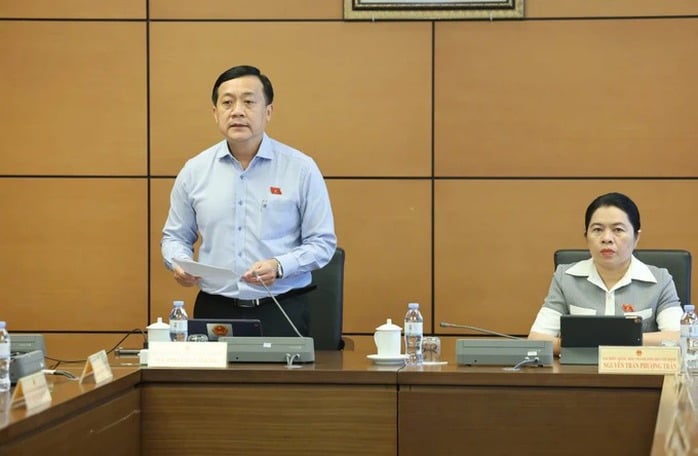
Representative Ha Phuoc Thang contributed his comments on the draft law on the afternoon of May 6th.
Commenting on the draft Law on Science, Technology and Innovation, delegate Ha Phuoc Thang suggested adding to Article 3 of the draft a definition of what constitutes a "scientific ethics council," "technology, innovation," and "code of ethics for science, technology, and innovation."
Delegates also proposed adding regulations on high-tech training programs, cooperation programs between universities, research institutes and technology enterprises to create human resources that closely match practical needs, and to create conditions for students and young scientists to participate in innovation projects from their studies; and regulations on piloting high-tech education models in major cities in some localities.
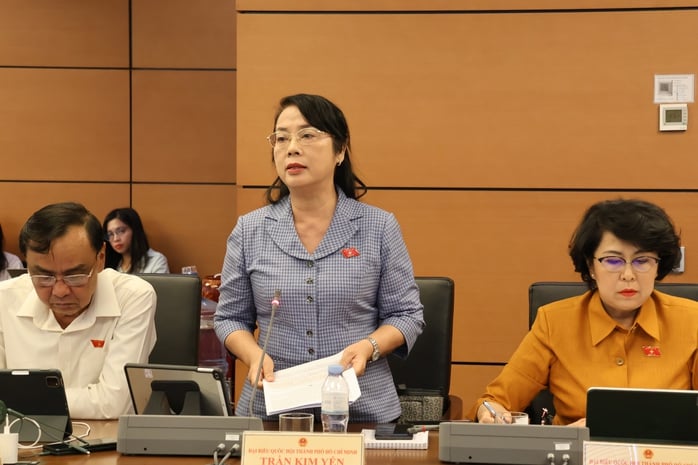
Delegate Tran Kim Yen contributes her opinion. Photo: Van Duan
Meanwhile, according to delegate Tran Kim Yen, the enactment of this law will create a solid legal foundation, bringing the Party's policies into practice and promoting the digital technology industry as a driving force for the country's economic growth. However, the draft law still overlaps with some provisions of other laws such as the Data Law and the Decree on Personal Data Protection, the High-Tech Law, the Civil Code, etc.
According to Representative Yen, the draft law needs to classify digital assets for more appropriate management. Specifically, the draft law should add the phrase "having special characteristics or being replaceable" after the phrase "expressed in the form of digital data".
Representative Tran Hoang Ngan assessed this as a challenging law, given the ongoing changes in innovation. Therefore, the draft law includes many contributions from various ministries, departments, and localities.
Mr. Ngan assessed this as a very urgent law that needs to be passed soon because it has both political, legal, and practical grounds for implementation. Especially the political basis, since the 13th National Congress of the Party identified "the important role, position, and contribution of science and technology, innovation, and digital transformation," and most recently, Resolution 57 of the Politburo.
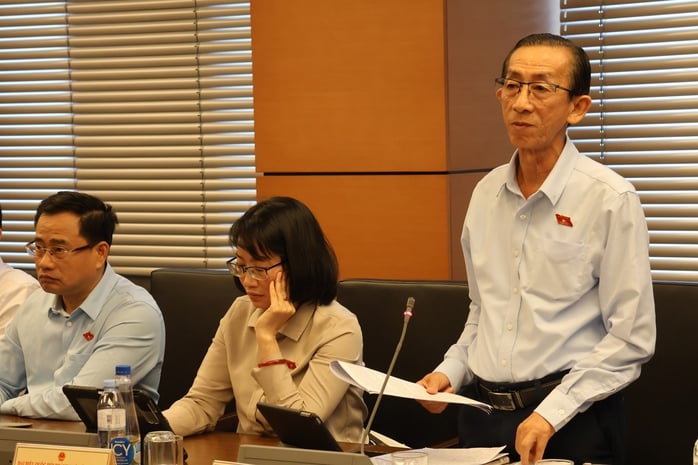
Delegate Tran Hoang Ngan delivers a speech. Photo: Van Duan
According to Delegate Tran Hoang Ngan, Ho Chi Minh City, in addition to being a leading economic development engine, is also ranked among the top in the country and the region (3rd place) in innovation. Compared to the 2013 Law on Science and Technology, there are still many shortcomings, including the lack of comprehensive regulations on mechanisms to attract and train high-quality human resources, as well as mechanisms to attract talent for science and technology activities (except for some specific resolutions in some localities).
Clause 5, Article 4 contains the phrase "focusing on shifting basic research activities to higher education institutions." However, if it stops there, it does not encompass all research institutions. Therefore, it is necessary to add "research institutes and academies."
Detailed regulations are needed regarding risk acceptance in scientific research.
Regarding Article 9, which relates to risk acceptance in scientific research and innovation, Representative Ngan stated that this is a new provision, concretizing the Party's policy and encouraging the spirit of innovation. However, detailed regulations are still needed to prevent abuse of risk acceptance regulations leading to budget losses; at the same time, the role of councils, especially the councils for evaluation, acceptance, and selection of research topics, should be enhanced to protect public assets.
Regarding Article 38 concerning national and local venture capital funds, Mr. Ngan stated that he does not support this because venture capital involves risk, and with risk comes caution; careful selection of personnel is necessary before deciding whether or not to invest.
"If we establish venture capital funds at the national and local levels and entrust them to non-specialized departments, the risks will certainly be high. Therefore, instead of establishing funds, we suggest creating a mechanism for private venture capital funds to operate," said Representative Ngan.
He also cited that there are currently nearly 10 active venture capital funds, which are financially strong and, when investing in a business, are willing to share not only capital but also management experience, supporting the startup project to achieve greater success. This should be considered in the draft.
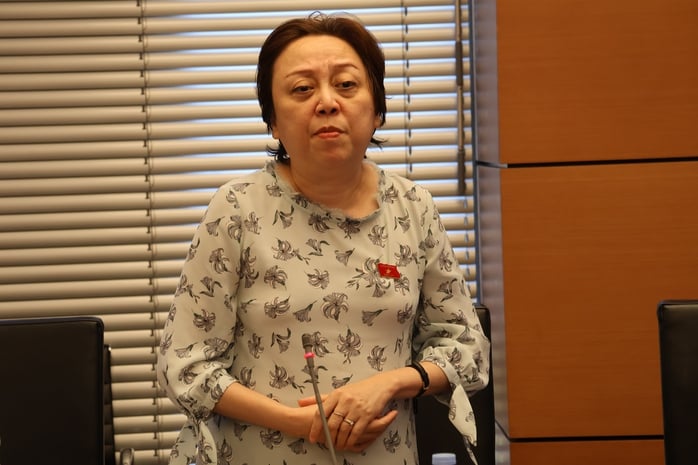
Delegate Pham Khanh Phong Lan delivers a speech. Photo: Van Duan
Meanwhile, delegate Pham Khanh Phong Lan agreed that the Law on Science, Technology and Innovation should be enacted soon. However, after reading the draft law, she assessed that "although it's called the Law on Science, Technology and Innovation, it doesn't seem to bring much innovation," because the draft law still has the feel of a resolution, is somewhat bureaucratic, and focuses on elevating scientists to "the cloud," emphasizing science in this way and that way, but what exactly does that entail?
Source: https://nld.com.vn/can-can-nhac-lap-quy-dau-tu-mao-hiem-quoc-gia-196250506182900259.htm








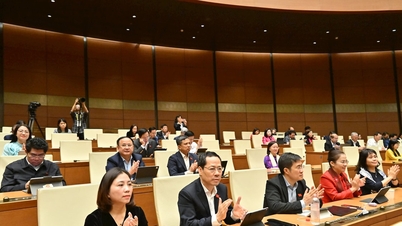

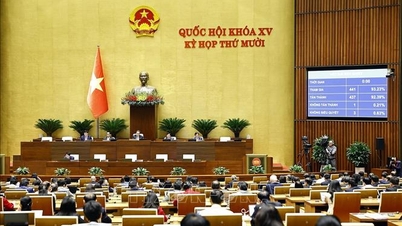

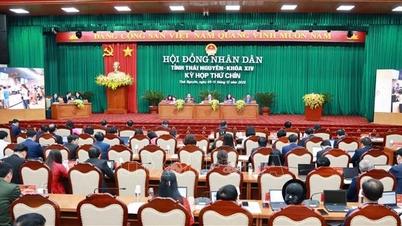
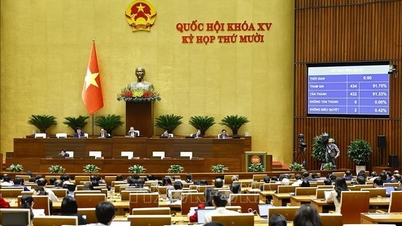
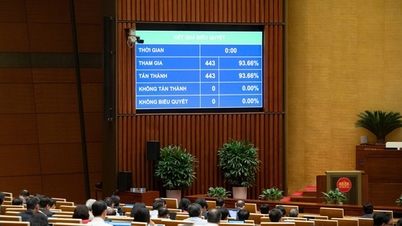






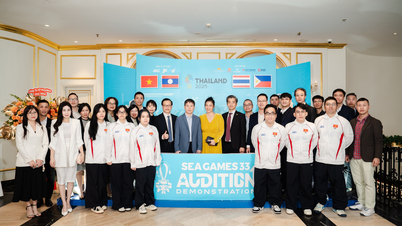


![[Video] Application of Biofloc technology in building an industrial-scale shrimp farming model](https://vphoto.vietnam.vn/thumb/402x226/vietnam/resource/IMAGE/2025/12/11/1765415061532_1765268925610-jpg.webp)






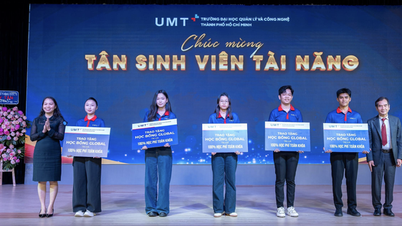
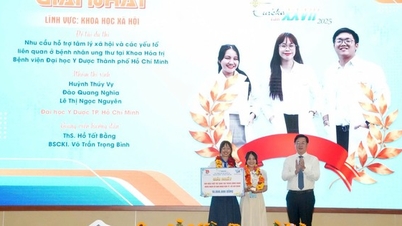
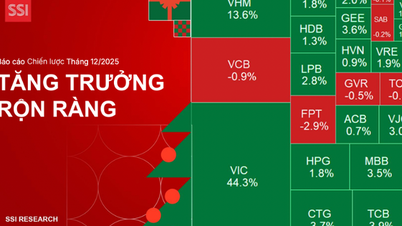

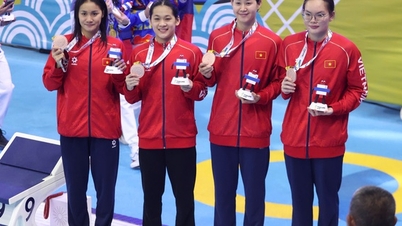


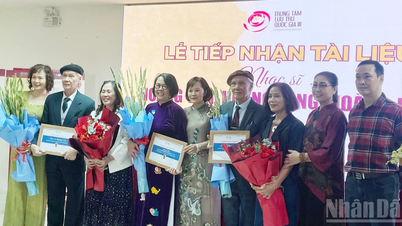





![[Video] The craft of making Dong Ho folk paintings has been inscribed by UNESCO on the List of Crafts in Need of Urgent Safeguarding.](https://vphoto.vietnam.vn/thumb/402x226/vietnam/resource/IMAGE/2025/12/10/1765350246533_tranh-dong-ho-734-jpg.webp)
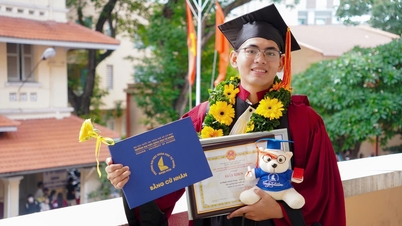
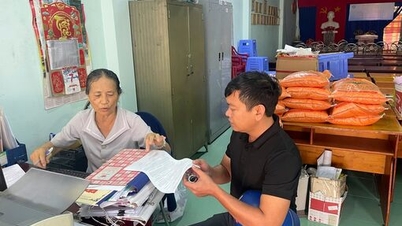

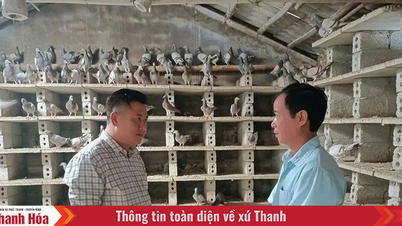



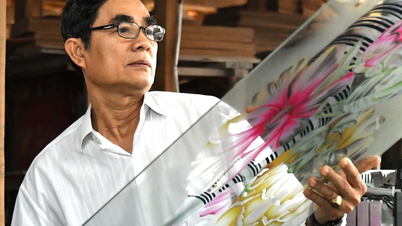

















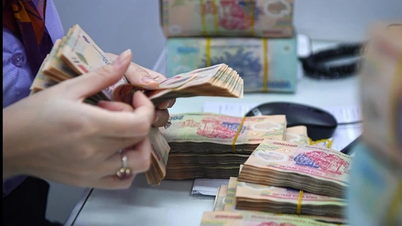







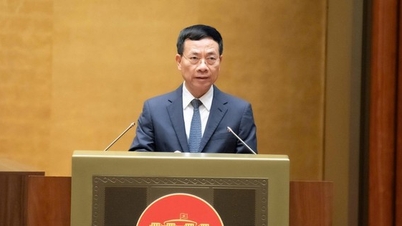





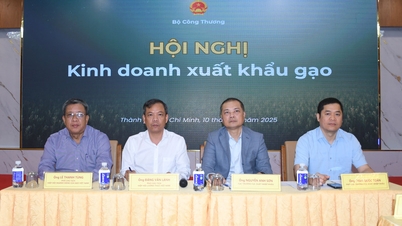


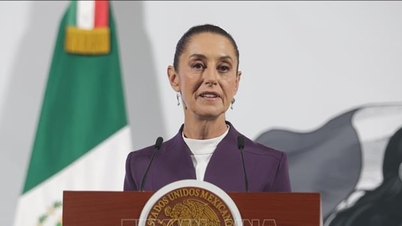

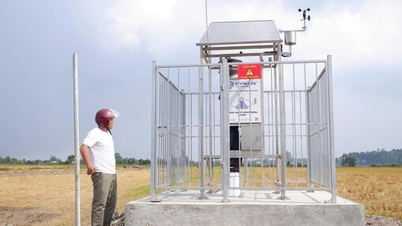
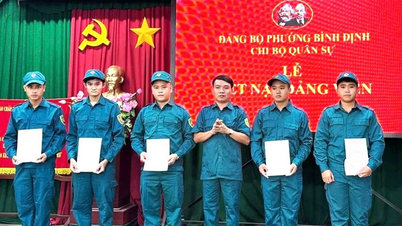



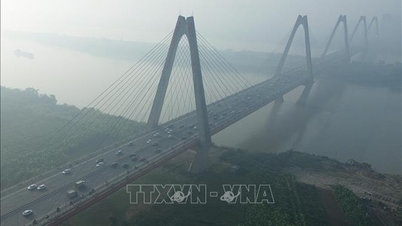




















Comment (0)